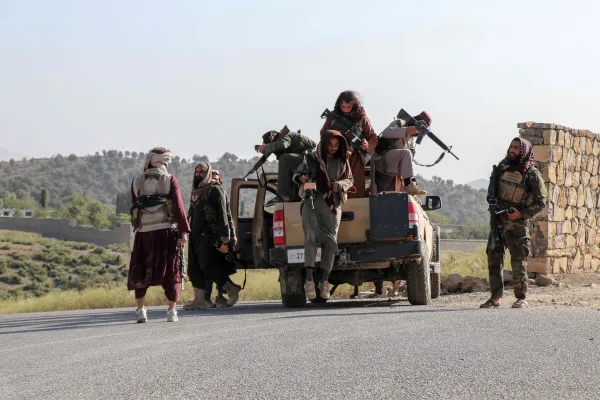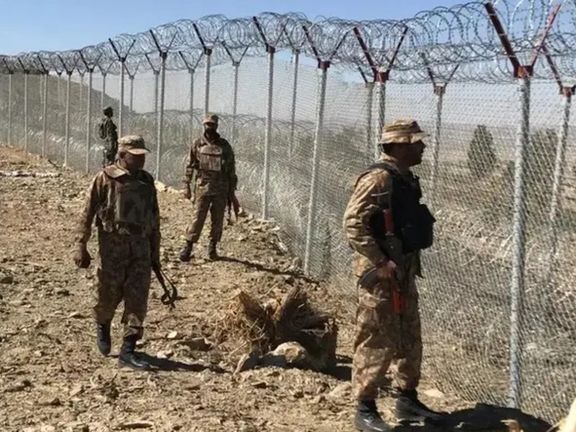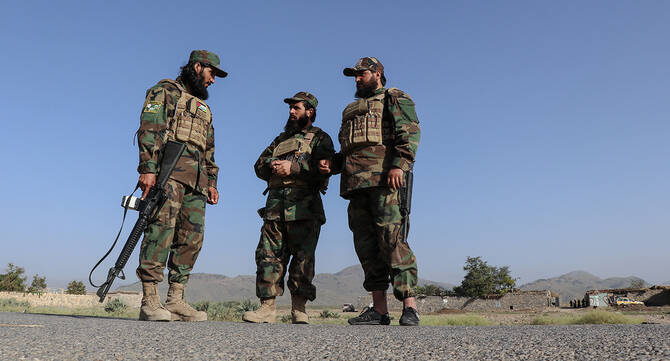Heavy Fighting Erupts Along Pak-Afghan Border
At least 23 Pakistani soldiers were martyred and over 200 Taliban fighters and affiliated terrorists were killed in intense overnight clashes along the Pakistan-Afghanistan border, the Inter-Services Public Relations (ISPR) said on Sunday.
The confrontation erupted after militants launched an unprovoked assault from the Afghan side on the night of October 11-12, 2025, prompting a strong counter-offensive by Pakistani forces.
According to the ISPR, the attack was carried out by Afghan Taliban elements and India-backed terrorist groups, collectively referred to as Fitna-al-Khawarij and Fitna-al-Hindustan by Pakistani authorities. The exchange of fire continued for hours across multiple sectors of Khyber Pakhtunkhwa and Balochistan.
Pakistan Responds Decisively to Cross-Border Aggression

The ISPR confirmed that Pakistan’s armed forces repelled the attacks while inflicting heavy losses on the attackers.
“Twenty-three brave sons of Pakistan embraced martyrdom while defending the country’s sovereignty,” the statement said, adding that 29 soldiers were injured during the fighting.
ISPR intelligence reports estimated that more than 200 Taliban and affiliated militants were neutralised, with many others wounded.
The statement said Pakistan used precision strikes to target Taliban camps, command posts, and terrorist training facilities located inside Afghan territory, including those linked to ISKP/Daesh.
To avoid civilian casualties, the military said it took “all possible measures” to ensure that no collateral damage occurred during the operations.
Multiple Taliban Posts and Camps Destroyed

State broadcaster PTV News reported that Pakistan’s retaliatory strikes destroyed several Taliban strongholds, including the Asmatullah Karar Camp at Spin Boldak, Durrani Camp, and Ghaznali Headquarters in the Noshki Sector.
Reports from security sources said dozens of Taliban fighters stationed at these facilities were killed.
Pakistani troops also briefly captured 21 hostile positions across the border and raised the national flag at a key post in the Zhob sector.
Military assessments confirmed widespread infrastructure damage to Taliban posts and supply networks “from tactical to operational depth.”
Islamabad Reiterates Right to Self-Defence
The ISPR condemned the Afghan government’s “cowardly actions” and accused Kabul of facilitating terrorism against Pakistan.
It stated that the attacks appeared aimed at destabilising border areas and diverting attention from terrorist safe havens operating inside Afghanistan.
Pakistan’s leadership, including President Asif Ali Zardari and Prime Minister Shehbaz Sharif, reaffirmed that there would be “no compromise” on national sovereignty.
President Zardari said that Pakistan’s stance was supported by United Nations reports confirming the presence of India-backed militants on Afghan soil. He urged Kabul to take verifiable action against these groups.
Prime Minister Shehbaz praised the professionalism and courage of Pakistan’s armed forces, stating that every provocation would be met with a “strong and effective response.”
He warned that Pakistan’s patience had limits and stressed that terrorists using Afghan soil would be neutralised.
Afghanistan’s Reaction and Regional Calls for Restraint
The Afghan interim government, meanwhile, claimed its attacks were a “retaliatory response” to earlier Pakistani air strikes. Taliban spokesman Zabihullah Mujahid urged Islamabad to “avoid the use of force” and accused certain Pakistani officials of attempting to destabilise Afghanistan.
Kabul’s Ministry of Defence said the clashes ended at midnight and warned that Afghan forces were prepared to defend their territory against future violations.
However, later reports suggested that Qatar and Saudi Arabia intervened diplomatically, leading Afghanistan to halt further attacks.
Following the escalation, major border crossings at Torkham, Chaman, and several smaller routes were temporarily closed for all traffic.
International Community Urges Dialogue
Saudi Arabia, Qatar, and Iran called for restraint and dialogue between the two Muslim neighbours. Riyadh emphasised the need to “avoid escalation and maintain regional stability,” while Doha reiterated its support for diplomatic engagement.
Iran’s envoy Abbas Araghchi also urged both countries to resolve disputes peacefully, noting that regional stability depends on cooperation between Pakistan and Afghanistan.
Pakistan Emphasises Peace but Warns Against Provocation
The ISPR reaffirmed that while Pakistan seeks peaceful relations and regional cooperation, it will not tolerate terrorist infiltration or cross-border attacks.
“The armed forces remain fully prepared to defend every inch of Pakistan’s territory,” the military statement said.
Officials maintained that constructive diplomacy, not aggression, is Pakistan’s preferred path — but warned that continued provocation from Afghan soil would invite a decisive response.

